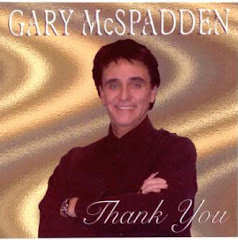Chip MacGregor Asks - Where will we be in five years?
http://chipmacgregor.com/
...At a conference recently where they asked people in the industry to talk about trends they're seeing in publishing. Specifically, they wanted to know what changes we should expect to see in the next five years. My list...
1. You will own an electronic reader. It may be a Kindle (the Amazon.com tool that works on cell phone service, so that books show up on your clipboard-like device like a text message), or the Sony Reader (a better device to use, in my opinion, since it feels more like a book and you can easily download your own files without sending them off or paying Amazon to do it), or some cheap $99 knock-off device that we'll start seeing in the next year. But you WILL own one. Why? No more forty-pound sack of books to carry around. A thousand books on one device. If you get bored with one, you can skip to another. No losing a book ever again, since the companies who sold you the title will replace it for free. You remember when you thought you could get by without a cell phone, iPod, DVD player, Blackberry, GPS, and laptop? Well, you now own most of those. You'll soon recognize the value of an electronic reader and you'll buy one.
2. The web will replace your book show and your book catalog. The big book shows are dying -- too expensive and not enough return to keep going. They'll be replaced with smarter, more cost-effective company events or web-based specialty events. And publishers will soon buy into the green movement by doing away with printed book catalogs and going to web-based catalogs that are always accessible and easy to correct and update.
3. Publishers will soon scrap their print-based semi-annual royalty statements to authors and agents, and will replace them with electronic statements. This makes too much sense. It could be done today, frankly, if publishers wanted to spend the time to make the change. The only thing keeping your publishing house from moving to an email version of your royalty statement is that it doesn't want to be bothered changing the system in light of all the other financial struggles it is facing. But within five years, they'll all have gone to electronic royalty statements.
4. The concept of convergence will jump from newspapers and magazines to books. We live in an image-driven culture, so it's only natural that the convergence of words and images will come to the world of books. On an electronic book screen, we can expect interactive features, downloadable extras, video clips, author interviews, and all sorts of other images to enhance the text. (Think of the newspapers they sell in the Harry Potter movies, with moving images and dynamic graphics -- that's exactly the type of book we'll see in the near future.)
5. A new role will be established within publishing houses. All those images and special features will mean a new role must be established to create and manage the convergence of words and images. We can expect "creative content editors" to become a regular part of every editorial staff. These indviduals will have experience with words as well as images and the interactive aspects marketing.
6. The new products will mean new companies. It may sound crazy in this lousy economic time to predict a spate of new companies being formed... but I think the new technology will make it imperative. One thing that has always been clear is that new breakthroughs in technology (and I believe the electronic reader is a wonderful breakthrough) means new companies to create cutting-edge applications. I think we'll see new companies rise up to compete with the big New York houses when it comes to e-books.
7. A writing superstar will self-publish a book (and make a killing). Again, I think this is inevitable. There is too much money at stake for a celebrity writer to leave it on the table by remaining with a regular royalty-paying publisher. I believe one of the big writers of our era will decide to self-publish, either digitally or in a print-on-demand format, and he or she will sell a boatload of books. (For those not in the know, you can make MORE money at self-publishing, if you have the ability to sell your book. The reason most self-pubbed authors lose money is because they don't know how to sell their book.)
Overcome Your Challenges
3 days ago








I am so encouraged by this post. This list shows me that the publishing industry is recognizing and adjusting to fundamental changes in the way people find and ingest stories and information.
ReplyDelete